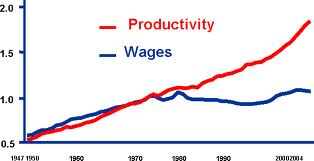'Takers versus. Makers;' Why Paul Ryan's Words Still Ring


Paul Ryan's Comment
Paul Ryan has been in the news, lately. The Wisconsin Representative, and the former Vice Presidential Candidate for Mitt Romney, has been having fun eating lunch with the President and unveiling ambitious budget plans that have not a chance in the world of passing the Democratic-controlled Senate (or President Obama's veto pen), and being called a "wacko bird" by none other than John McCain, who once ran for President himself. Representative Ryan is being hailed, once again, as the Republican Party's policy wonk, though his policies have very little appeal with the public. Since Ryan happens to be the Republican Party's policy wonk, he has been given the very high honor of proposing budgets that have next to no chance of passing, which allows Republicans near and far the chance to imagine that they actually won last year, and which presents an appearance that Republicans are actually proposing something. Anything.
Indeed, one must always give Mr. Ryan points for honesty, even when it comes inadvertently. In October of last year, Mr Ryan said, "Right now about 60 percent of the American people get more benefits in dollar value from the federal government than they pay back in taxes. So we're going to a majority of takers versus makers in America and that will be tough to come back from that. They'll be dependent on the government for their livelihoods [rather] than themselves." He has, in fact, been using the phrase "takers versus makers" for years. It means something like this; "The United States of America is on its way towards a future nanny state, like those in Europe, where honest, hardworking, taxpaying Americans are required to pay for those who are unable, or unwilling, to work." Takers versus makers, you see? Get it?
Given that this was said in the context of a Presidential campaign, one might wonder what relevance this quote has after the campaign. Surprisingly, it makes a lot of sense, but not in the way Mr. Ryan wants us to understand it. You see, there is, in fact, a clash between takers and makers going on in this country. Here are some facts to consider, and then after those, an analysis of what they might mean.

The State of the United States
The first fact is that, by some estimates, the average American works 40 hours per week, amounting to 2,000 hours a year. These numbers transcend race, gender, political ideology and, in most cases, class. The average Congressman works about 80 hours per week, but that is only because they have so much time on their hands to spend with their constituencies. This is hardly a bad thing.
But then again, the average American has a total salary of $50,875 (more or less) while our good Congressman has a total salary of $174,000, which nicely sums up the second fact.
Then, there is the fact that members of Congress will get a total of 239 days off of work this year. Most Americans, meanwhile, will spend all of two weeks off of work, (or even just one) and consider themselves lucky for the vacation.
Taxpayers could save up to $39 million dollars a year if Congress lowered their pay by $100,000 dollars.
The United States of America is the most overworked nation in the industrialized world, much more so than any European country, or China, or even second place Japan (which used to be first).
In the United States, wealth inequality is a growing problem. The wealthiest top 1 percent of Americans owns more wealth than all of the bottom 100 million Americans put together. A majority of Americans believe that wealth inequality is worse than it has been in a long time, and they're right. But the problem is even worse than most Americans think it is.
Historically, the United States has been at its absolute best when it spent money on improving infrastructure, increasing Americans access to a decent education, and other investments vital to any nations economic growth. In the midst of a shaky economic recovery, many school districts are having their funding cut. And American infrastructure, once the envy of the world, is currently in a state of disrepair.
Many Americans, who are otherwise eager to work, will end up facing chronic unemployment, because of the recent budget cuts forced by the sequester.

The United States Congress
And through it all, Congress (the entirety of Washington, really, but mostly Congress) remains staunchly divided on even basic issues, like raising the debt ceiling. Congress is so divided that those like Congressman Paul Ryan simply offer a budget plan that could not possibly pass the Senate, even if it were a serious plan to balance the budget, which it will not do until after 10 years. Congress is so divided that members of the body no longer meet with, talk to or even run into other members (cocktail hour has long been a thing of the past, you see). And it seems that no one in Congress these days really wants to get to know anyone outside of their own political party. Might this be a reason for the gridlock?
So, Americans are generally overworked, increasingly underpaid, and have a certain portion of their tax dollars going to a Congress that is so divided that it really cannot do anything other than vote for a pay raise for itself, and that gives itself extra time off work. American infrastructure is falling apart, education is facing spending cuts, and again, Congress is inept in the face of these troubles.
So, in a way, Mr Ryan's campaign words do make a sort of sense after all. In this world, there are takers and makers. Why, Congress does indeed take what Americans make.
Maybe more people should question whether or not they are getting their dollars worth...








